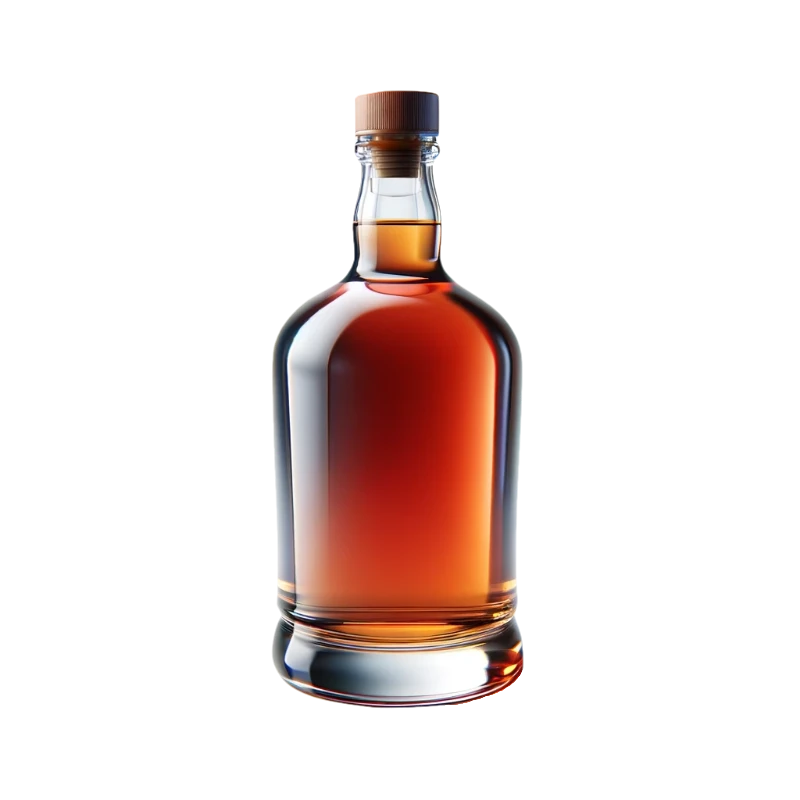Cognac — Nutrients, Health Benefits, And Shopping Tips

Written by Listonic Team
Last update on September 4, 2024
Nutrients
Nutrition facts
Amount per 100 g
Calories
🔥 231 kcal
| Nutrition per: 100 g | Value | % Daily Value* |
|---|---|---|
| Carbs | 0 g | - |
| Fiber | 0 g | - |
| Sugars | 0 g | - |
| Glycemic Index | 0 | - |
| Protein | 0 g | - |
| Sodium | 0 mg | - |
| Total Fat | 0 g | - |
*The % of Daily Value (DV) tells you how much a nutrient in a serving of food contributes to a daily diet. 2,000 calories a day is used for general nutrition advice.
Key takeaways
Health risks
- High alcohol content which can lead to addiction, liver damage, and other health problems if consumed in excess.
- High calorie content which can contribute to weight gain if consumed frequently, especially when combined with sugary mixers.
- Potential for dehydration as alcohol is a diuretic, which can lead to increased urination and potential dehydration if not balanced with adequate water intake.
- Negative impact on mental health as excessive alcohol consumption is associated with depression, anxiety, and other mental health disorders.
How to choose cognac
When evaluating cognac, look for a deep amber color and a rich, complex aroma that includes hints of fruits, spices, and floral notes. Taste the cognac; it should be smooth with a balanced sweetness and a long finish.
Do not purchase cognacs that are harsh or have a one-dimensional flavor profile. Quality cognac should be aged appropriately, with layers of flavor that unfold slowly.

How to store cognac
Cognac should be stored in a cool, dark place to preserve its flavor and quality. Keep it upright to prevent the cork from drying out. Properly stored cognac can last for many years without losing its quality.
Heat and light exposure can degrade cognac, so storing it near heat sources or in direct sunlight should be avoided. Ensuring the bottle is tightly sealed helps maintain its rich flavor. Avoid frequent temperature changes, which can affect its taste.
✅ Extra Tip
How long does it last?
Cognac can last indefinitely if unopened and stored in a cool, dark place. Once opened, it should be consumed within 1-2 years for the best flavor. Always keep it tightly sealed to prevent oxidation and evaporation.
What to do with leftovers?
Leftover cognac can be used in a variety of culinary applications. Add it to desserts like fruitcakes, truffles, or chocolate sauces for a rich, warming flavor. Cognac is also excellent for making flambéed dishes, such as bananas Foster or crepes Suzette.
Use cognac in savory dishes as well, such as deglazing a pan for a rich sauce or gravy to serve with meats like pork or beef. It can also be used in marinades, where it tenderizes the meat and adds depth of flavor. If you have a lot of cognac, consider making a cognac glaze for desserts or a cognac-infused custard. Cognac can also be added to coffee or hot chocolate for a warming drink, or mixed into cocktails like a sidecar or brandy Alexander.
👨⚕️️ Medical disclaimer
Discover products from other categories
Listonic Team
Fact-checked
Our editorial team checked this article to make sure it was accurate at the time of publishing it.
Get the top-rated shopping list app

cognac
1 piece







